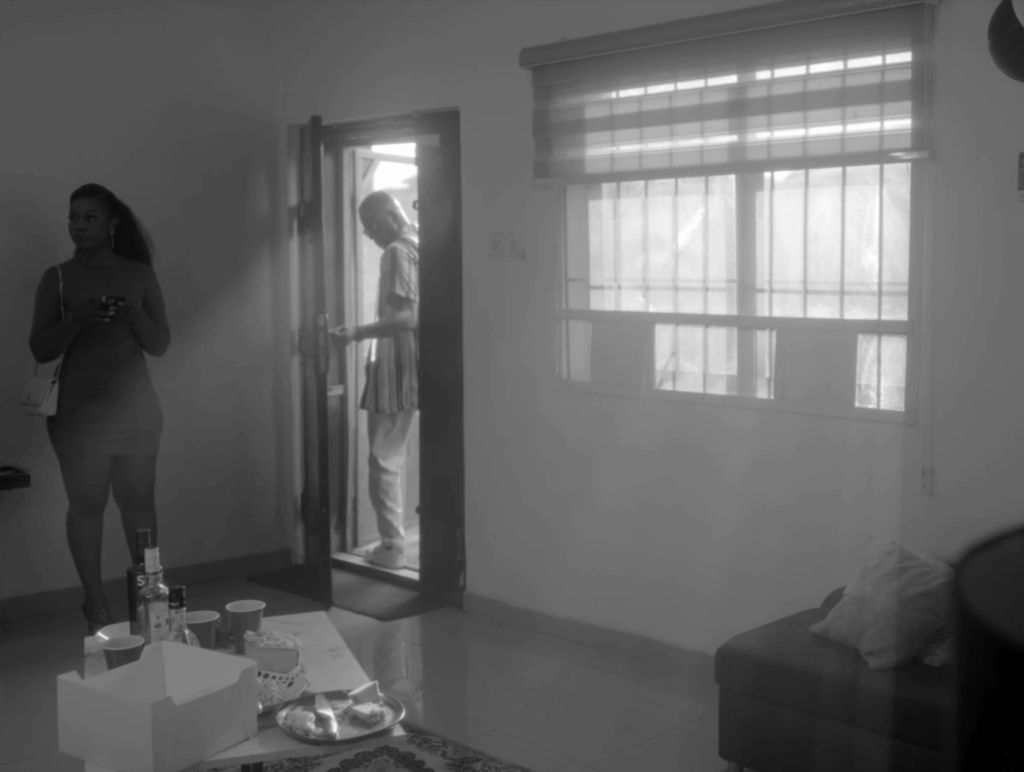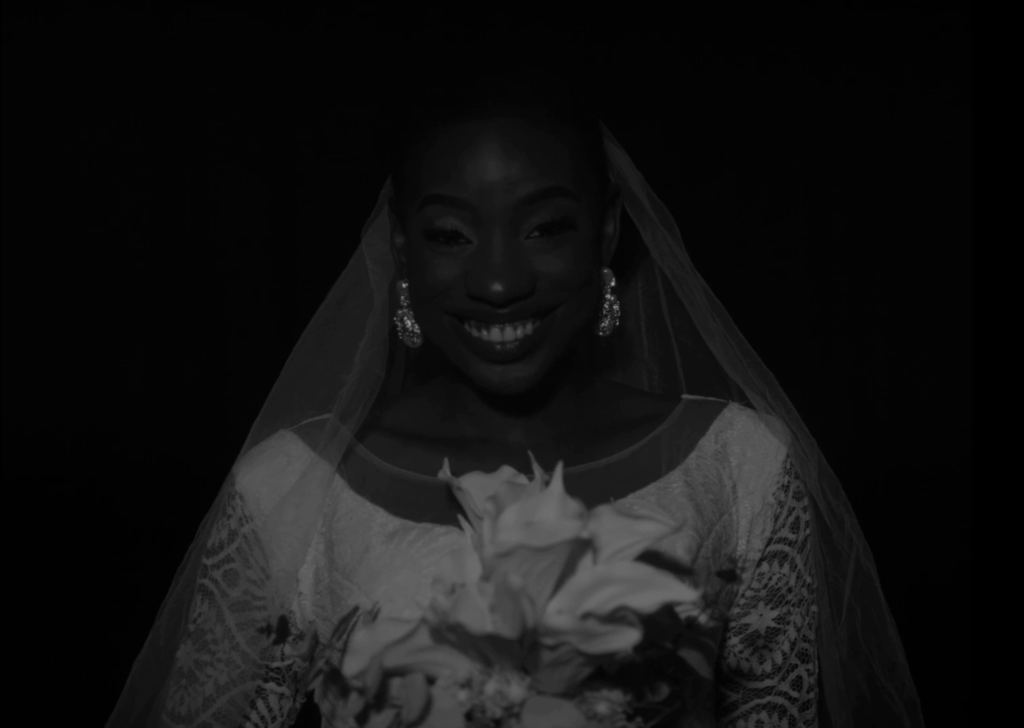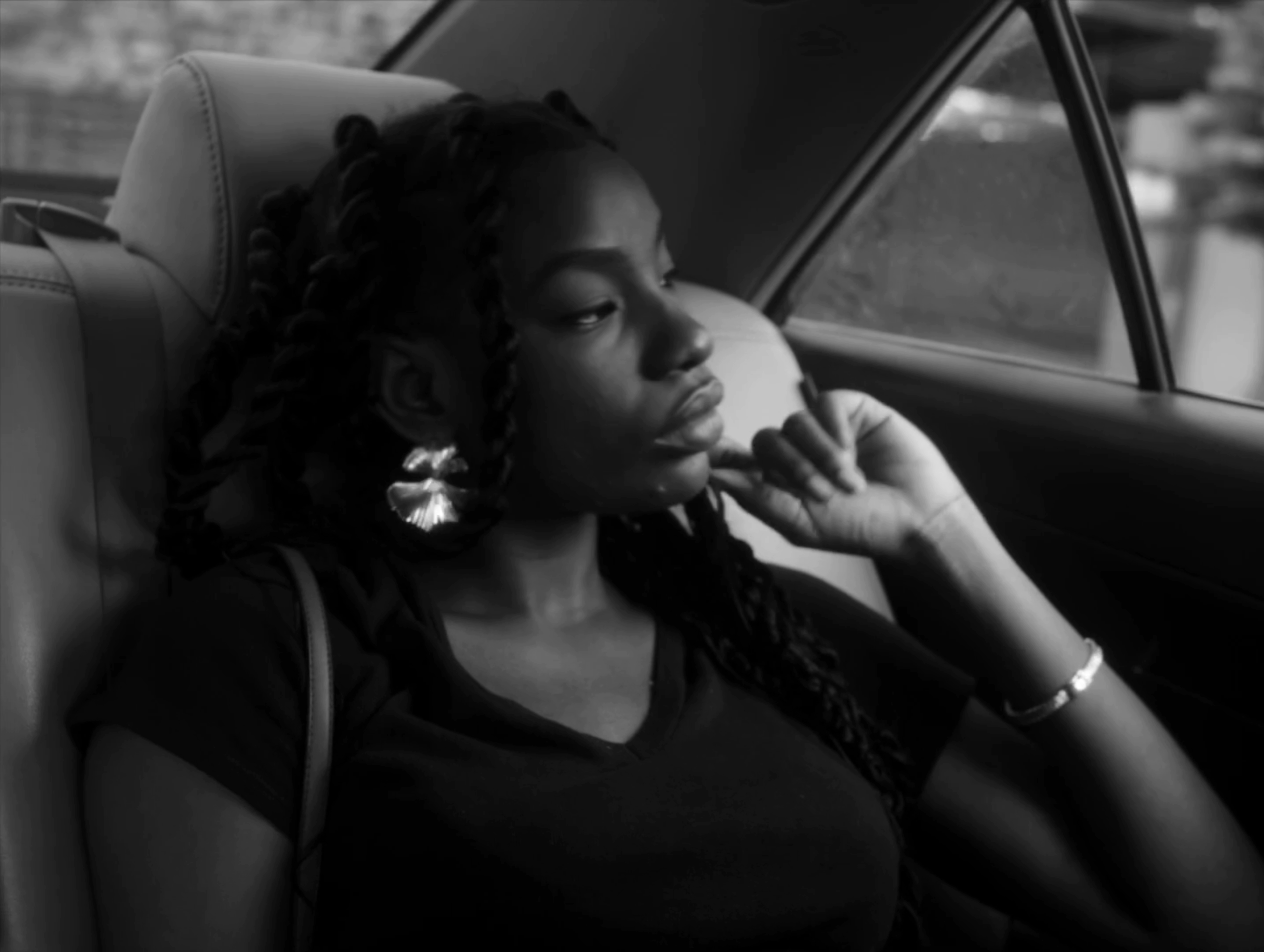True Affection opens with an image of Sewa (Funmbi Toye) in a wedding veil, shot in gorgeous monochrome, completely surrounded by a black background. We don’t need to be told this is some sort of fiction or dream. Sewa has a broad, beautiful smile, and she’s looking directly at the camera.
Smash cut to reality. We see a new, parallel shot — Sewa frowning, looking down at the table as she’s lectured for not being married by age 26. That is the tension True Affection in a nutshell: a romantic dream for something more fulfilling clashing with social pressure to accept and embrace what’s around us, even if it doesn’t call to the soul. Here, it’s about love, but it may as well be about economic mobility or any other vision of a better life.
Written and directed by Nigerian-Canadian filmmaker Wale Matuluko, True Affection is set in Lagos (and appears to be shot there as well). Through Sewa’s eyes, we witness her social group in the midst of a transition from young adulthood to adulthood, getting engaged and discussing settling down. Sewa mentions a long-distance boyfriend, but the film leaves ambiguous whether he actually exists.

In mirrored sequences, we see a young man, Cheta (Charles Lenny), confronting inverse pressure. His group of friends talk about the fine line between flings and wives. Cheta finds himself drawn to Sewa. Unlike Sewa’s supposed long-distance partner, Cheta is present, and he seems kind. The movie leaves their exact connection ambiguous, but the pair find each other in the dreamlike, all-black setting of the opening shot. Perhaps they are happy and destined to get married, or perhaps Sewa has realized her romantic vision is, indeed, a dream.
True Affection rings with fresh dialogue that captures a Lagosian culture at a crossroads. The conversation (helpfully subtitled) is in a flowing blend of English and Nigerian Pidgin English. Traditional values rub against youthful free spirit, causing sparks and a feeling of displacement for Sewa. That displacement is amplified by the role of technology in the film — turning relationships into transactions, the ringing of phone notifications blending into the film’s chiming soundtrack. This inspired bit of sound design pays off as the film cuts to credits, the phone chimes turning into a wedding march.

By far the film’s strongest production point is its striking black-and-white cinematography by Granville Wilson. The film makes tremendous use of light and shadow, which amplify everything else the story is doing regarding murky reality and feeling of uncertainty. It evokes the look of last year’s The Girl with the Needle, but even more shadowy and monochrome. Matuluko’s editing is strong, with a few elliptical cuts and sequences.
The cast is overall strong, with an easy naturalism in the dialogue scenes in particular. Toye has terrific screen presence in the lead performance. They help elevate the film’s sturdy production. True Affection is an extremely promising short for director Wale Matuluko.
True Affection is streaming on NoBudge and for free on Vimeo.
Wale Matuluko is a self-described “multidisciplinary storyteller born and raised in Lagos” who has shared paintings and a preview for an upcoming graphic novel. You can find his website here.
Crew credits on True Affection include Wale Matuluko as writer, director, and editor; Granville Wilson as cinematographer; Dave Kemp as composer; Bennett Kerr as sound designer; and Calvin Bellas as colorist. Cast credits include Funmbi Toye, Charles Lenny, Maryann Ivy Amakor, Adebayo “Royale” Oloko, and Chinedu J. Orjiudeh.
Dan Stalcup is the film critic for The New Cinephile and The Goods. Reach him at dan.stalcup@gmail.com.
